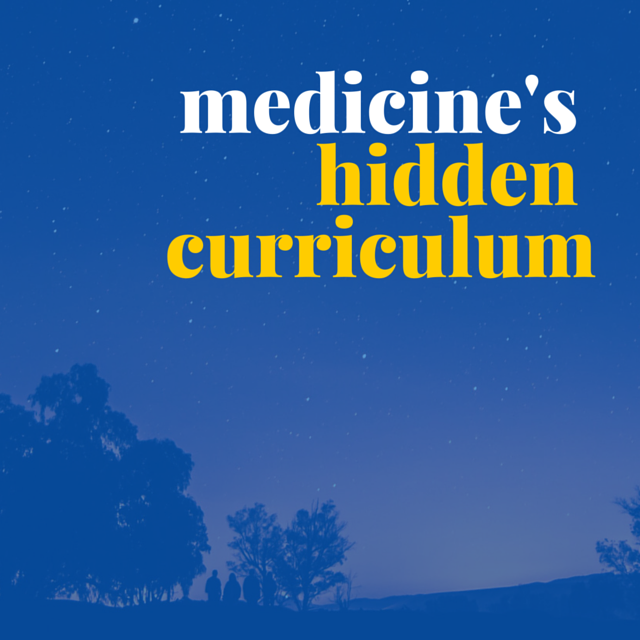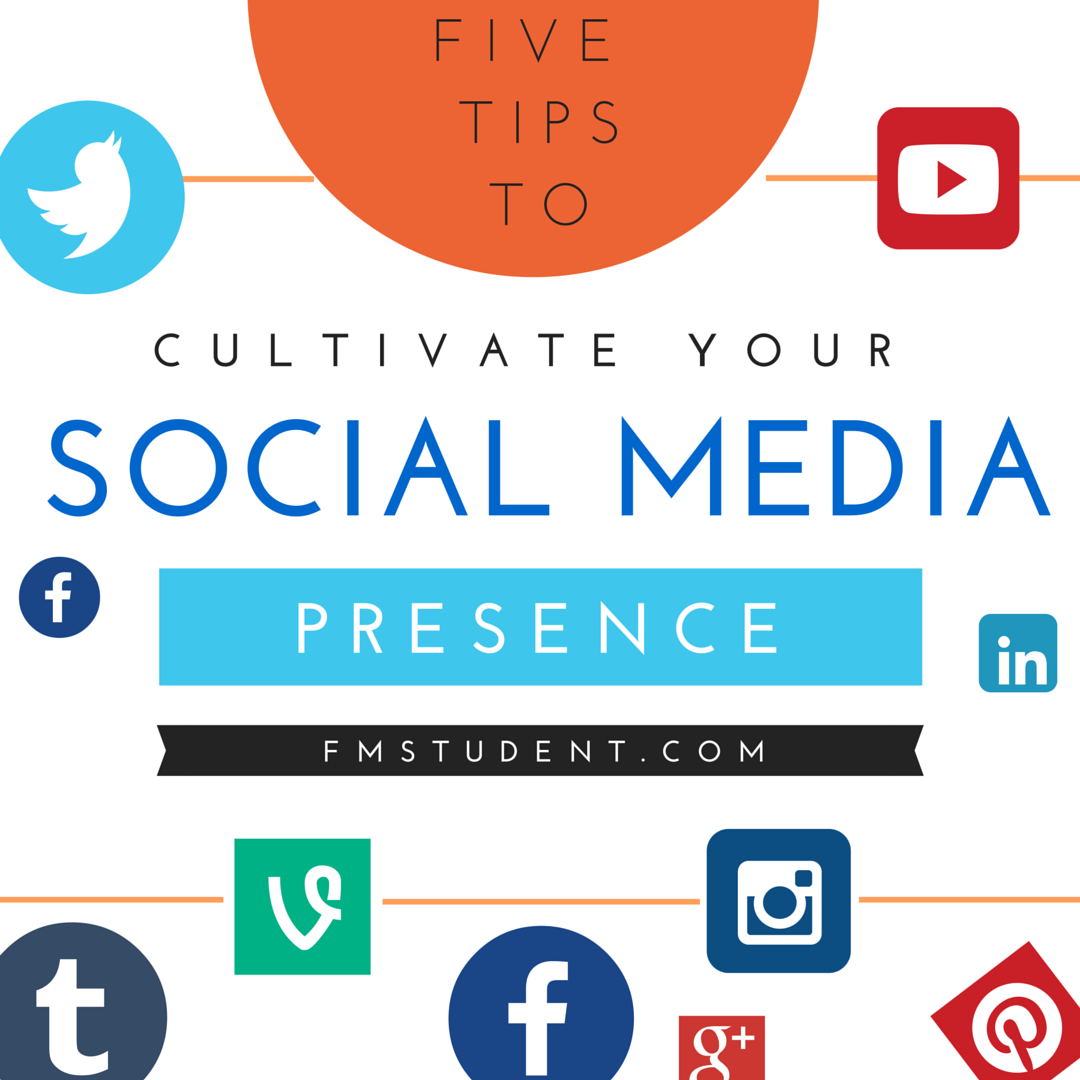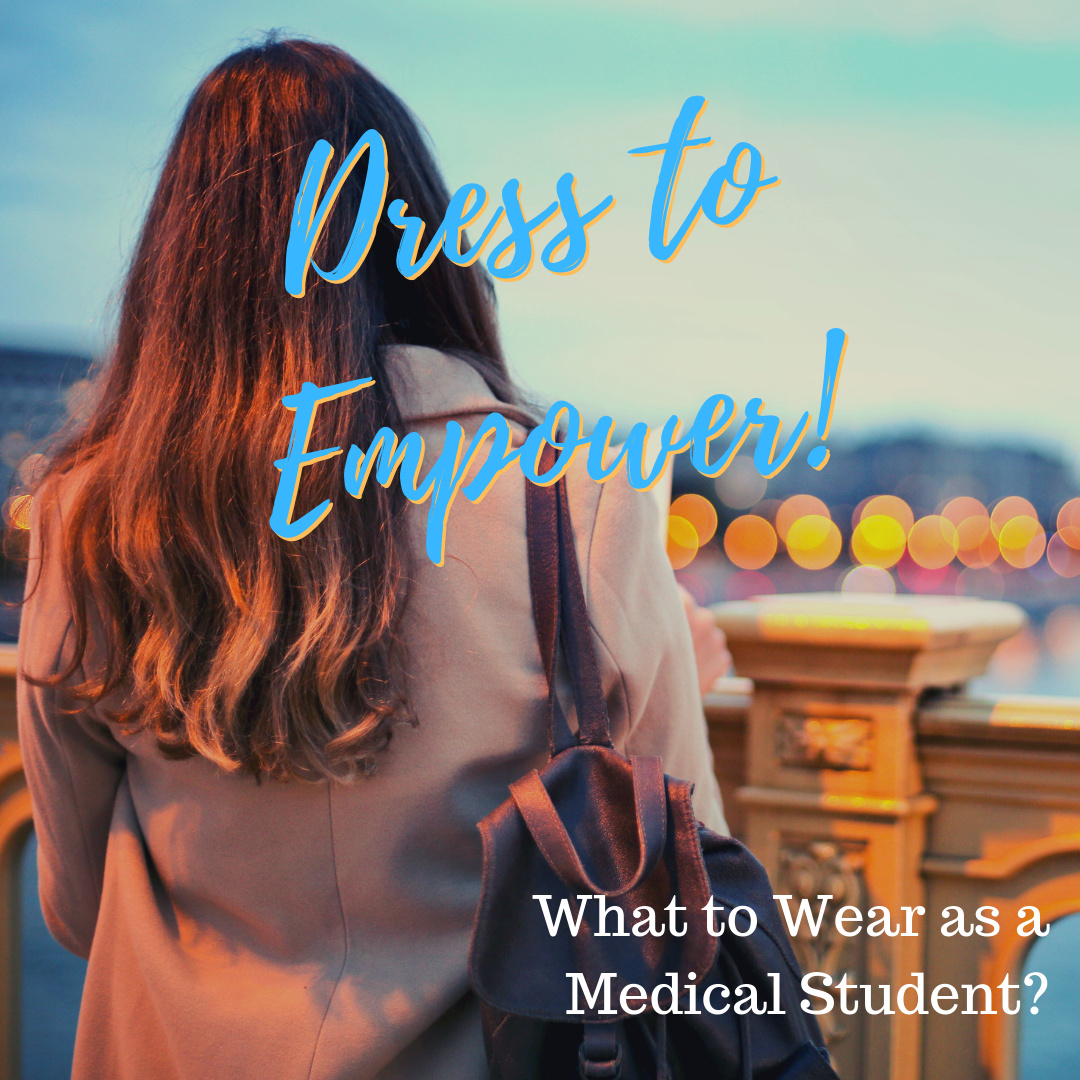Medicine’s Hidden Curriculum & its Effects on 3rd Years
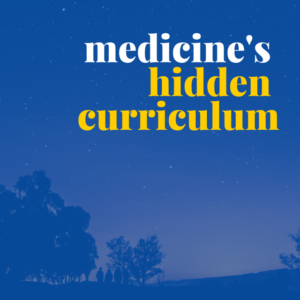 Hidden Curriculum & Medical Martyrdom
Hidden Curriculum & Medical Martyrdom
Medicine is full of people who went through an un-healthy process to get to where they are. The intense competition of pre-med builds a foundation of over-achievement and self-neglect, the beginning of our medical martyrdom. We decorate this house with fear of failure and our reward is med school acceptance. We follow this with two years of near constant studying and celebrate with an intense board exam. If we pass, we celebrate by leaping blindly into clinical rotations, where we meet physicians who shape us by demonstration, and so begins our training in the hidden curriculum.
While they often repeat “Do as I say, not as I do,” their mantra is in regards to re-capping syringes or skipping a part of the H&P. When it comes to discussion of work hours and sleep their advice is uniform and draconian – “come early, leave late, read every night, sleep when you’re dead.” They take pride in running on less than five hours of sleep, scoffing at any student who foolishly admits to getting more. We would never dare to be so cocky as to admit to being tired to either a resident or attending, as they are always more exhausted than us. Only a madman would ask to leave early or imply they have commitments outside the hospital – you’re not a person or a parent, you’re a third year medical student. The hospital is your home and your iPhone knows it before you do.
Consequences of Medical Apprenticeship
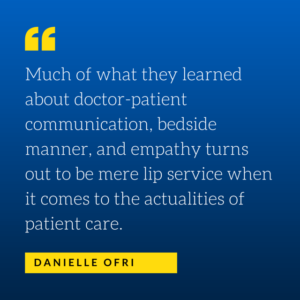 Our brains aren’t meant to run on so little sleep. We catch up when can, precious golden weekends or a rare afternoon off, but it’s never enough. Third years get sick often, not because of their pediatrics rotation, but because they are run down, over worked and exhausted. Of course, we never call in and say we’re sick. We show up to the hospital after taking whatever OTC meds we had on hand, nose running and fever high, and hope that our attending will notice and send us home. Even when offered, we may hesitate and offer to stay. When we finally get sent home we debate collapsing in bed, or reading, only to repeat the process the next day.
Our brains aren’t meant to run on so little sleep. We catch up when can, precious golden weekends or a rare afternoon off, but it’s never enough. Third years get sick often, not because of their pediatrics rotation, but because they are run down, over worked and exhausted. Of course, we never call in and say we’re sick. We show up to the hospital after taking whatever OTC meds we had on hand, nose running and fever high, and hope that our attending will notice and send us home. Even when offered, we may hesitate and offer to stay. When we finally get sent home we debate collapsing in bed, or reading, only to repeat the process the next day.
This chronic sleep deprivation is only the tip of the martyrdom iceberg. In What Doctors Feel, Danielle Ofri explores the effects of the hidden curriculum on medical students and our subsequent loss of empathy. Again and again we experience moral and ethical compromises as a result of emulating those that teach us, and find our personal values conflict with the requirements of our rotation. With each ethical dilemma presented we must comply or refuse, walking a tight rope, because senior physicians control our evaluations, and refusal may negatively impact our residency options. Is it any surprise that we frequently stand silent in the face of racism and sexism? That we find an excuse not to perform a pelvic on the OR patient, but say nothing about why it’s morally reprehensible?
The result of this daily struggle? Medical students who survive to graduation have been found to have markedly decreased empathy and a lack of growth in their moral reasoning skills.
How to Change the Hidden Curriculum?
So how can we move forward and decrease the impact of this hidden curriculum? There have been suggestions that students should speak up for themselves. However, unless students magically don’t have attendings filling out their evaluations, that won’t happen. Most sources recommend teaching preceptors and residents to be aware of the hidden curriculum, and training them to discuss and resolve these situations. The effect of such training has yet to be demonstrated as beneficial.
My recommendation puts the onus of avoidance on you, the medical student. When you see a preceptor speak of a patient or a nurse in a derogatory fashion make mental note, compartmentalize if need be, and at the end of the day remember the experience as something you don’t want to do. I kept notes on every rotation of people who impressed me and who I wanted to emulate, as well as notes of behaviors I wanted to be sure to never repeat.
Ultimately, you can learn from everything you experience, and you don’t have to repeat the mistakes of those that teach you. So, what are your thoughts? Are there other ways to overcome the hidden curriculum that permeates medicine?

References
- AAFP “Expectations in Medical School”
- Danielle Ofri, Slate article and What Doctors Feel
- STAT’s op-ed on racism in clinical education
- NPR Hidden Curriculum Shapes How Med Students Learn End-Of-Life Care
- STFM’s Illuminating the Hidden Curriculum powerpoint
- BMJ’s The hidden curriculum in undergraduate medical education: qualitative study of medical students’ perceptions of teaching
- CMAJ’s Changes in students’ moral development during medical school: a cohort study.
- KevinMD transcript of interview with Pamela Wibble “We lose a medical school full of physicians every year to suicide: An interview with Dr. Pamela Wible”

